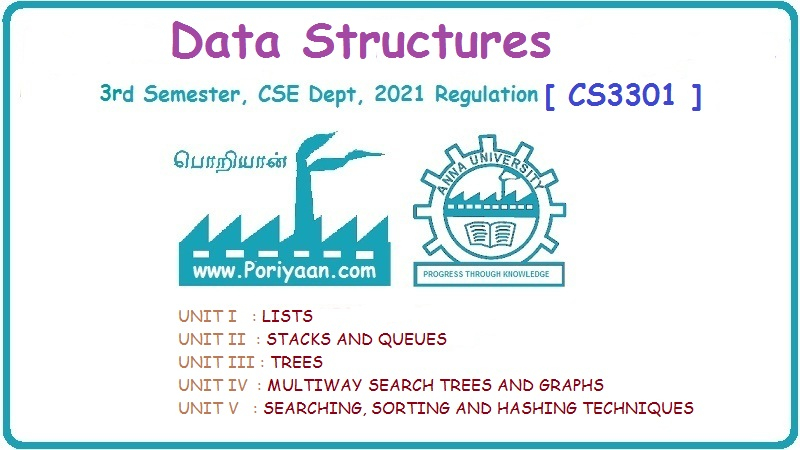Data Structure: Unit I: Lists
Data Structure
Definition, example, Types, Classification
The data structure can be defined as the collection of elements and all the possible operations which are required for those set of elements. In other words data structure will tell us the required elements as well as the legal operations on those set of elements.
UNIT - I
CHAPTER - 1 : LISTS
Introduction to Data Structure
Definition: The data structure can be
defined as the collection of elements and all the possible operations which are
required for those set of elements. In other words data structure will tell us
the required elements as well as the legal operations on those set of elements.
For example:
Consider
a set of elements which are required to store in an array. Various operations
such as reading of the elements and storing them at appropriate index can be
performed. If we want to access any particular element then that element can be
retrieved from the array. Thus reading, printing, searching would be the
operations required to perform these tasks for the elements. Thus data object
integer elements and set of operations form the data structure-array.
Types of Data Structures
The data
structures can be divided into two basic types Primitive data structure and
Non-primitive data structure. The Fig. 1.1.1. shows various types of data
structures.

Linear
data structures are the data structures in which data is arranged in a list or
in a straight sequence.
For
example
Arrays,
List
Non
linear data structures are the data structures in which data may be arranged in
hierarchical manner.
For example
Trees,
Graphs
Data Structure: Unit I: Lists : Tag: : Definition, example, Types, Classification - Data Structure
Related Topics
Related Subjects
Data Structure
CS3301 3rd Semester CSE Dept | 2021 Regulation | 3rd Semester CSE Dept 2021 Regulation
